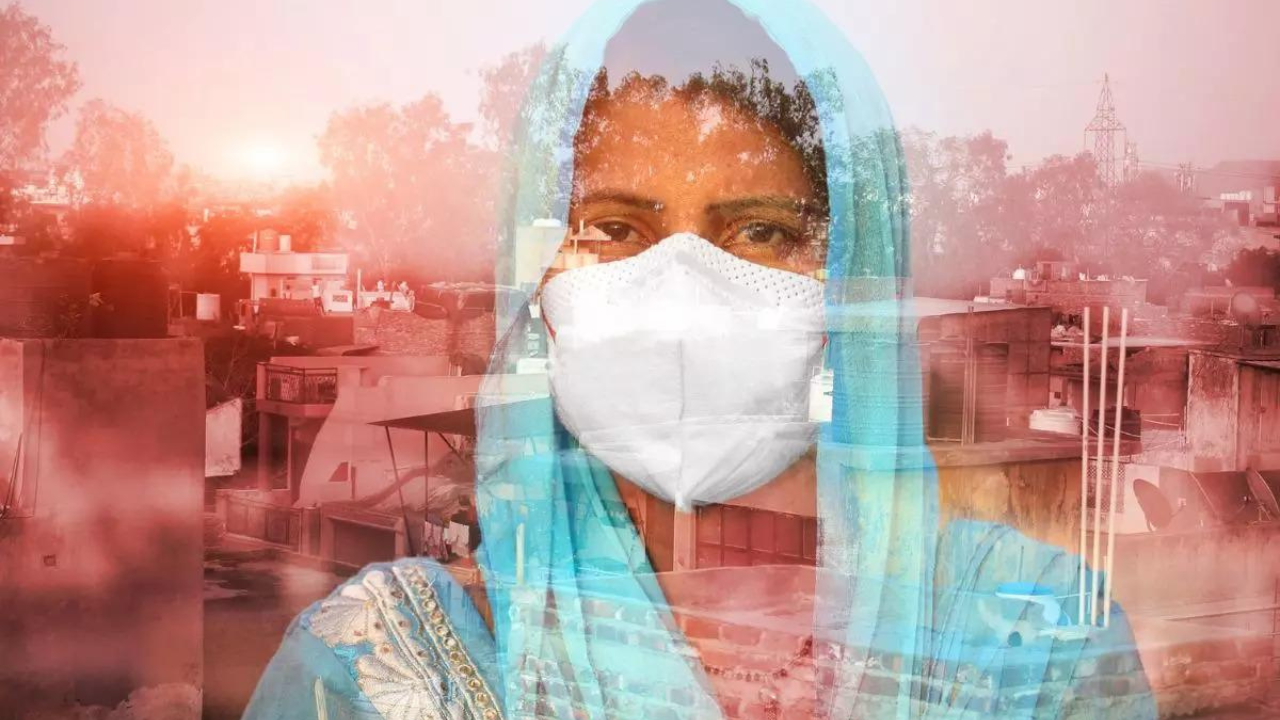[ad_1]
BATHINDA: Ahead of the World Environment Day on 5 June, the Union for International Cancer Control (UICC) has stressed the need for drastically reducing air pollution to improve public health and prevent millions of deaths from cancer and other non-communicable diseases.
“Creating cleaner and greener environments to reduce air pollution is about fostering conditions that encourage more active, healthier lifestyles, further lowering the risk of various cancers and non-communicable diseases”, says Dr Sonali Johnson, Head of Knowledge, Advocacy and Policy, UICC.
Founded in Geneva in 1933, UICC is cancer-fighting international organisation, with over 1,200 member organisations in 170 countries.
It says only 1% of the world’s population, or about 80 million people out of 8 billion, breathes air that does not exceed air quality limits. Exposure to air pollution can lead to cancer, stroke, respiratory, cardiovascular diseases and other health issues – similar risks as those associated with smoking tobacco.
Air pollution currently contributes to 6.7 million deaths annually, matching the mortality rates seen during the peak years of the COVID-19 pandemic (2020 and 2021). This crisis is especially pronounced in low- and middle-income countries, which account for 92% of pollution-related deaths.
The global health damages associated with air pollution are estimated at a staggering USD 8.1 trillion, or 6.1% of global GDP.
According to the Lancet Commission on pollution and health, air pollution is responsible for 15% of all the lung cancer deaths.
It stated air pollution is threatening progress being made in reducing the burden of cancer worldwide by contributing to the rise of the number of cancer diagnoses each year – cancers that are preventable.
Implementing measures such as fostering the transition to renewable energy, promoting public transportation, bicycling and walking, increasing green spaces, and strengthening pollution control policies can significantly reduce air pollution. Not only do these actions directly lower the risks of developing cancer and other diseases by reducing exposure to harmful pollutants, but they also indirectly promote better health by creating environments conducive to physical activity.
Marking World Environment Day on 5 June, the UICC has called upon the global health community and policy makers to recognise the correlation between environment and health.
UICC is making air pollution and cancer a key focus, working with the Clean Air Fund, establishing an expert group to synthesise the latest global evidence, spotlighting best practices and identifying research gaps on the impact of air pollution on cancer.
“World Environment Day serves as a reminder that action towards a cleaner environment is also a step towards a healthier population and a crucial element in reducing the burden of cancer around the world and particularly in low-resourced regions least equipped to manage the disease,” says UICC CEO Dr Cary Adams.
“Creating cleaner and greener environments to reduce air pollution is about fostering conditions that encourage more active, healthier lifestyles, further lowering the risk of various cancers and non-communicable diseases”, says Dr Sonali Johnson, Head of Knowledge, Advocacy and Policy, UICC.
Founded in Geneva in 1933, UICC is cancer-fighting international organisation, with over 1,200 member organisations in 170 countries.
It says only 1% of the world’s population, or about 80 million people out of 8 billion, breathes air that does not exceed air quality limits. Exposure to air pollution can lead to cancer, stroke, respiratory, cardiovascular diseases and other health issues – similar risks as those associated with smoking tobacco.
Air pollution currently contributes to 6.7 million deaths annually, matching the mortality rates seen during the peak years of the COVID-19 pandemic (2020 and 2021). This crisis is especially pronounced in low- and middle-income countries, which account for 92% of pollution-related deaths.
The global health damages associated with air pollution are estimated at a staggering USD 8.1 trillion, or 6.1% of global GDP.
According to the Lancet Commission on pollution and health, air pollution is responsible for 15% of all the lung cancer deaths.
It stated air pollution is threatening progress being made in reducing the burden of cancer worldwide by contributing to the rise of the number of cancer diagnoses each year – cancers that are preventable.
Implementing measures such as fostering the transition to renewable energy, promoting public transportation, bicycling and walking, increasing green spaces, and strengthening pollution control policies can significantly reduce air pollution. Not only do these actions directly lower the risks of developing cancer and other diseases by reducing exposure to harmful pollutants, but they also indirectly promote better health by creating environments conducive to physical activity.
Marking World Environment Day on 5 June, the UICC has called upon the global health community and policy makers to recognise the correlation between environment and health.
UICC is making air pollution and cancer a key focus, working with the Clean Air Fund, establishing an expert group to synthesise the latest global evidence, spotlighting best practices and identifying research gaps on the impact of air pollution on cancer.
“World Environment Day serves as a reminder that action towards a cleaner environment is also a step towards a healthier population and a crucial element in reducing the burden of cancer around the world and particularly in low-resourced regions least equipped to manage the disease,” says UICC CEO Dr Cary Adams.
[ad_2]
Source link

